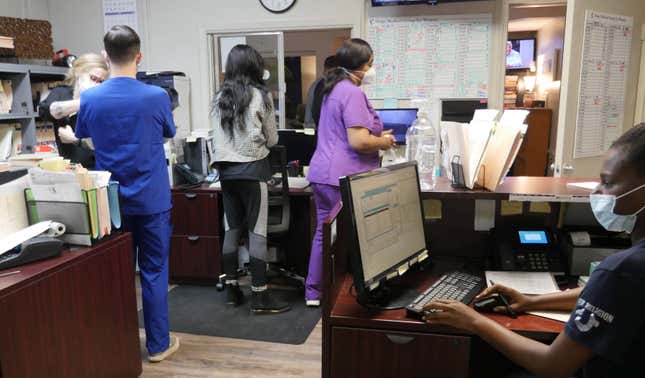It’s Not Just Lawmakers—a Lot of People Don’t Know What Abortion Is
“Plan B is to get rid of a baby," one respondent said in a new study gauging American's perceptions of abortion. It’s not!
AbortionPolitics

It goes without saying that lawmakers responsible for abortion bans in states across the country know astonishingly little about pregnancy and reproduction. They’ve passed bills requiring abortion seekers to learn pseudoscience methods to “reverse” abortion pills, equating abortion with regret, and, just a few years ago, an Ohio Republican touted a bill extending insurance coverage to a nonexistent treatment for ectopic pregnancies while banning coverage of abortion. (Ectopic pregnancies, which occur when the embryo implants outside the uterus and endangers the pregnant person’s life, are treated with abortion care.)
Lawmakers’ ignorance is especially dangerous at a time when misinformation about what is or isn’t a “medically necessary” abortion is putting women’s lives at risk. Meanwhile, Plan B is being inaccurate conflated with abortion, while Republicans are conspiring against contraception using the overturning of Roe v. Wade as a pretext.
As it turns out, the general population (and electorate) are fairly confused about what is or isn’t an abortion, too (which might contribute a teensy bit to how these idiots keep getting elected!). Per a new study by Guttmacher Institute published this week, 22% of about 2,000 survey participants regard emergency contraception, which prevents pregnancy in the first place, as abortion. A third equate miscarriage care with abortion, when these are two separate experiences. Researchers also found that some survey respondents automatically regard a pregnancy as a “baby”—the very line of thinking that can hold pregnant people criminally liable for what happens to their pregnancy.
-

-

-

-

-

-

-

-

-

-

-

-

-

-

-

-

-

-

-

-

-

-

-

-

-

-

-

-

-

-

-

-

-

-

-

-

-

-

-

-








































